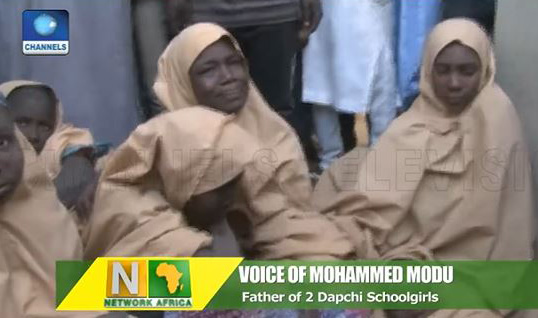
DAPCHI, Nigeria (BP) — Boko Haram on March 21 released most of the 110 schoolgirls kidnapped from Dapchi, Nigeria, a month ago, but five girls still missing are feared dead, and a lone student remains captive because of her Christianity, the Associated Press reported today (March 22).
 Five of the girls who remain missing died of injuries suffered in a stampede when Boko Haram abducted them Feb. 19 from the Government Girls Secondary School, a parent of one of the five girls learned from another student, the AP reported. The reportedly deceased girls were buried in graves in the bush, the student said, but the deaths have not been confirmed.
Five of the girls who remain missing died of injuries suffered in a stampede when Boko Haram abducted them Feb. 19 from the Government Girls Secondary School, a parent of one of the five girls learned from another student, the AP reported. The reportedly deceased girls were buried in graves in the bush, the student said, but the deaths have not been confirmed.
The parent, Inuwa Garba, told the AP he believed the reports of his 16-year-old daughter’s death.
“They told me five of the girls died and my daughter, who was among them, was the first to die,” the AP quoted Garba. “I believe what the girls told me because they were all together and saw what happened.”
A sixth student still missing remains captive because she is Christian, a student told the AP.
“We were freed because we are Muslim girls and they didn’t want us to suffer. That is why they released us,” the AP quoted Khadija Grema, a released student who said Boko Haram retained a Christian classmate to convert her to Islam.
Boko Haram released a total of 106 people, the Nigerian military said in press briefings, including 104 students and two townspeople who also had been captured in the February raid. The terrorists drove the captives to the Government Girls Secondary School, released them in the middle of the night and warned parents not to educate the girls, the Nigerian government confirmed to AP. In the Hausa language, Boko Haram translates “Western education is forbidden.”
Boko Haram released the girls just days after human rights advocate Amnesty International accused the Nigerian military of ignoring repeated advance warnings of the raid. The military received “multiple calls up to four hours before the raid on Dapchi,” Amnesty said in its accusation, citing “testimonies from multiple credible sources” not named in the report.
“The Nigerian authorities have failed in their duty to protect civilians, just as they did in Chibok four years ago,” Amnesty’s Nigeria director Osai Ojigho said in the report. “Despite being repeatedly told that Boko Haram fighters were heading to Dapchi, it appears that the police and military did nothing to avert the abduction.
“Evidence available to Amnesty International suggests that there are insufficient troops deployed in the area, and that an absence of patrols and the failure to respond to warnings and engage with Boko Haram contributed to this tragedy,” Ojigho said.
The Nigerian military called the Amnesty report an “outright falsehood,” the AP reported.
The released schoolgirls and others were transferred by military aircraft to Abuja for quarantine, questioning and any needed care, the military said in press briefings.
The ordeal came four years after Boko Haram enraged the international community by kidnapping 276 schoolgirls from Chibok, located about 170 miles southeast of Dapchi. While many of the Chibok girls have been recovered or released, about 100 are believed still missing.
In January, Boko Haram released a video claiming to show about 10 of the Chibok girls who reportedly said they would never leave the terrorists, speaking in the Hausa language. Sahara TV posted the video Jan. 15, saying it was obtained from journalist Ahmad Salkida who specializes in reporting on terrorist activity occurring where the girls were first taken.
Nigerian President Muhammadu Buhari claimed in December 2015 he had technically defeated Boko Haram, weakening the group so much that it would only be able to carry out isolated suicide bombings.
Boko Haram, which began attacking first Christians and then others in its attempts to establish Sharia law in Nigeria, has killed an estimated 20,000 people and displaced 2 million in Nigeria and neighboring nations since 2009. The terrorists have claimed allegiance to the Islamic State and have been accused of killing Christian farmers increasingly in raids since 2017 in cooperation with or under the guise of Fulani herdsmen.















